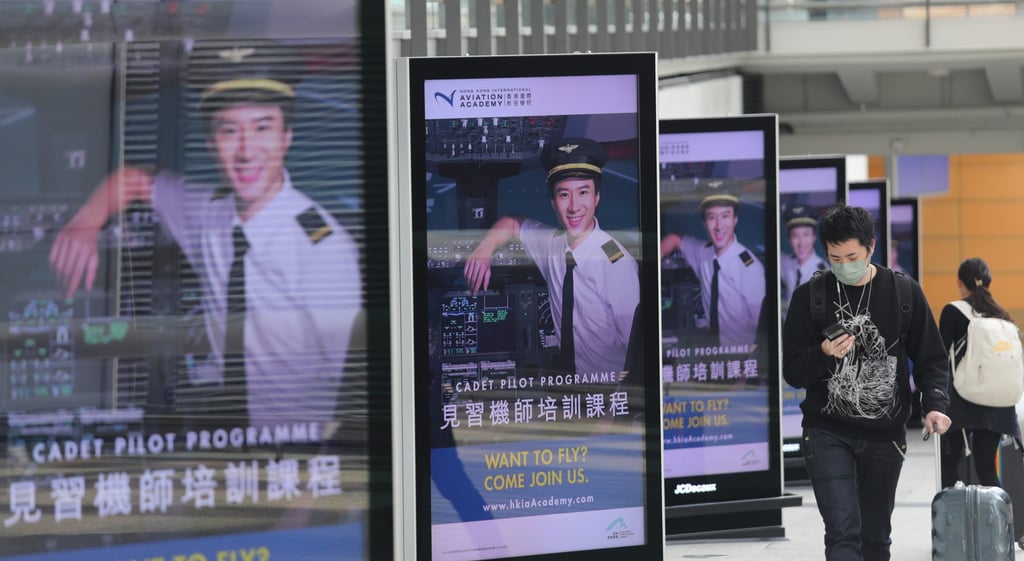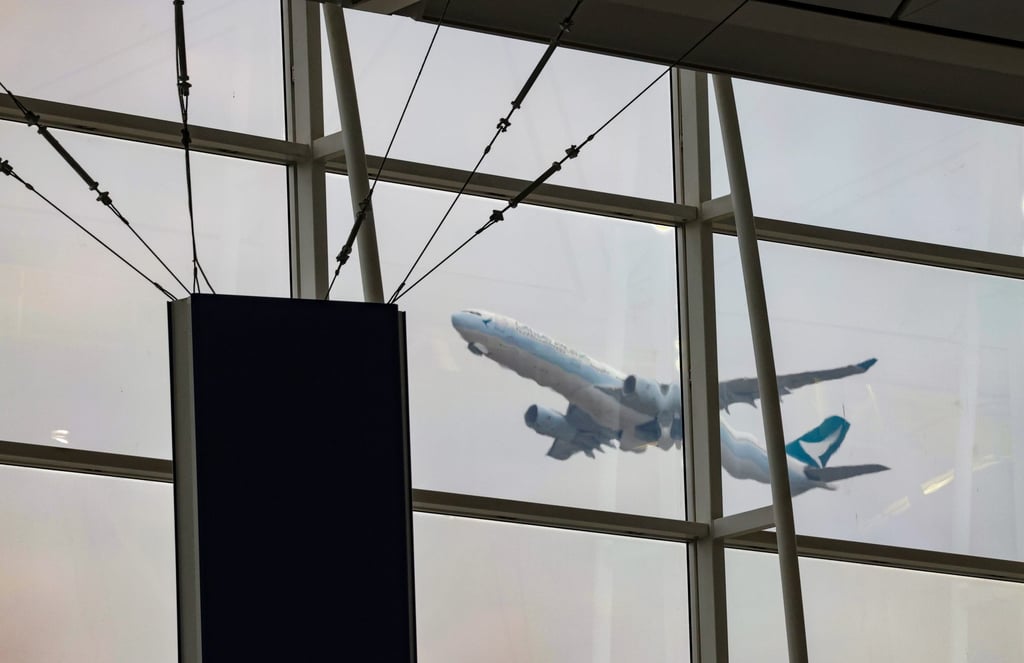What is Cathay Pacific’s alcohol, drugs policy? Post looks at Hong Kong carrier’s manual
Hong Kong’s civil aviation authority said it was concerned about the incident and told the airline to investigate and submit a report.
In light of the incident, the Post takes a look at some of the rules that Cathay pilots need to follow.
1. What is the company’s alcohol and drugs policy?
According to Cathay’s operational manual, which was seen by the Post, a breath test failure for employees in safety-sensitive roles means a reading greater than or equal to 9 micrograms of alcohol in 100ml of breath.
The requirement is stricter than Hong Kong’s drink-driving limit, which is 22mcg/100ml of breath, equivalent to 0.05 per cent blood alcohol content.
The manual adds that crew members should not report for duty if they are under the influence of alcohol or other drugs.
They should also refrain from consuming alcohol up to 10 hours before they are scheduled to report for duty.
Pilots are also prohibited from using cannabis, cocaine and other illicit psychoactive substances, such as prescription medications without a valid prescription, according to the manual.
“The industry takes alcohol and drug abuse seriously … Crew are aware of the responsibilities, for sure,” Hong Kong Aircrew Officers Association chairman Paul Weatherilt said.

2. How are pilots tested?
A Cathay spokesman said the airline conducted random drug and alcohol tests for its pilots in line with industry standards.
Further random testing could also be conducted by local authorities at the relevant destinations, he added.
According to Cathay’s manual, refusal to take a test can lead to disciplinary action, including termination of employment.
Breath tests are used to detect alcohol levels, while urine or hair samples can be used to screen for other drugs.
3. What are the rules for medications?
The manual warns that employees taking any medications, whether prescription or over-the-counter, “are responsible for taking reasonable steps to ascertain whether the medications can affect the safe performance of their job and taking appropriate steps to minimise associated risk”.
The airline also asks pilots not to fly if they are dependent on medication to ensure a safe flight, and never to do so immediately after starting a new medication since they might suffer from unexpected side effects or other reactions.
Medications with common side effects such as lightheadedness, dizziness, drowsiness, visual disturbances, or warnings about operating motor vehicles or machinery must not be taken while flying, according to the manual.
Weatherilt said that pilots while travelling should take into consideration the laws of various jurisdictions for what counts as over-the-counter medications, and consult an aviation medical specialist if they have any doubts.
“Most pilots will know they need to consult with a doctor about any drugs they are taking and be especially careful when taking drugs over the counter without consulting a specialist,” he said.

4. What is the policy for pilots with alcohol or drug abuse issues?
Cathay has an alcohol and drug assistance policy for its cabin crew and ground employees.
The policy’s purpose is to support employees diagnosed with alcohol and drug dependencies and work towards their recovery, according to a copy of the document seen by the Post.
“The company believes that Psychoactive Substance Use Disorder is a treatable disease and will provide support for early recognition, treatment and monitoring of [employees],” it states.
Under the policy, employees are “strongly encouraged” to self-report substance abuse issues.
The company offers support for cases where pilots come forward of their own free will or with the support of others, so long as a report does not arise from an operational incident, the document says.
Pilots cannot declare they have a substance abuse problem at the time of drug or alcohol testing.
The airline also has “absolute discretion” over whether an employee can take part in its support programme, according to the policy.
Weatherilt said many airlines had similar policies, but pilots could only qualify if they were upfront with employers about their dependency.
If a pilot were discovered to have a substance abuse problem during a screening or due to an incident, then they would have no option of retroactively joining a support programme, he added.
“If you get caught, it means termination,” he said.